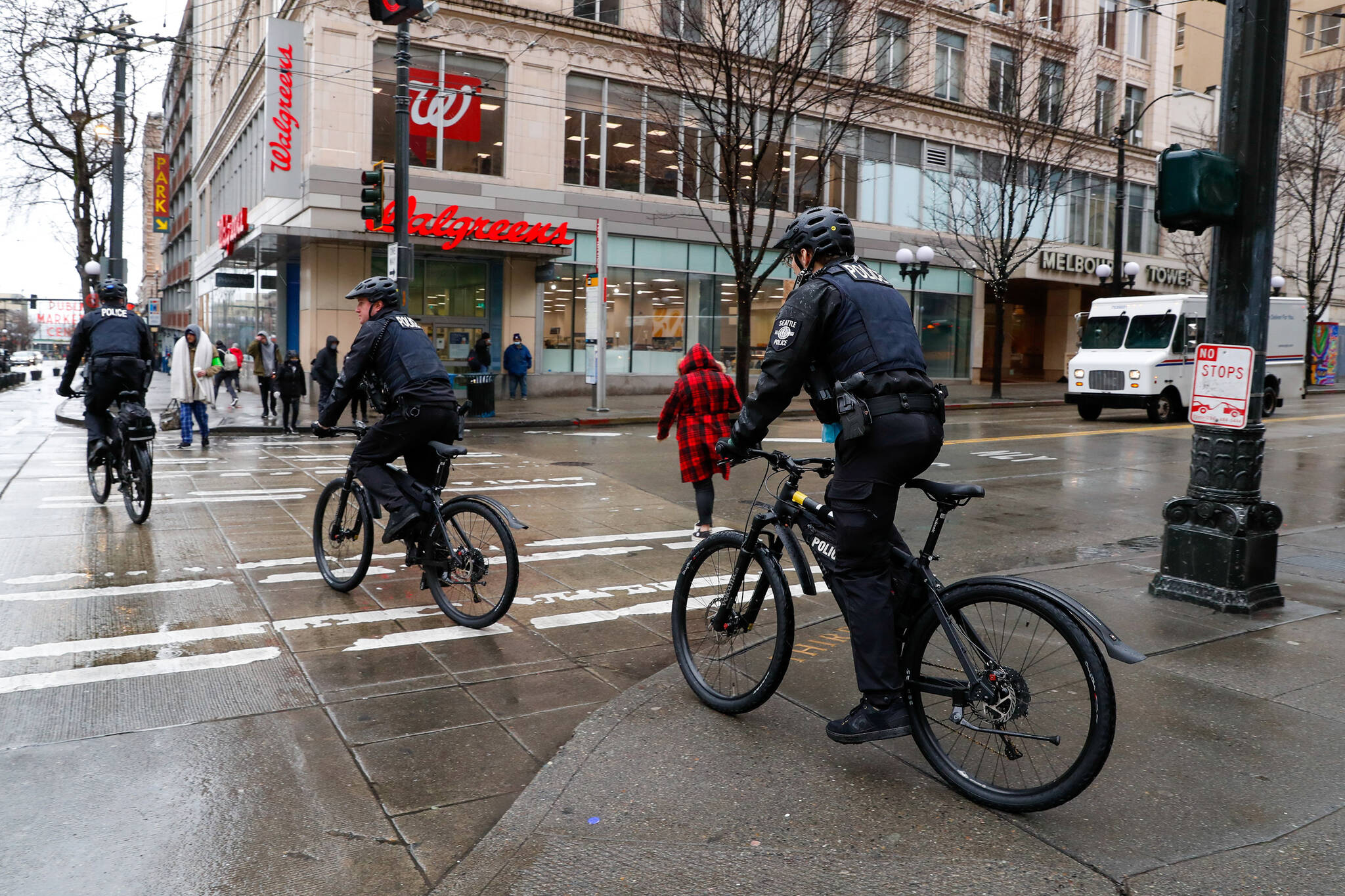Seattle-area officials and urbanist Richard Florida agree: The prognosis for downtown COVID-19 recovery is good, if stakeholders can improve housing, inequities and crime.
Hundreds of Seattle business community members gathered for the annual Downtown Seattle Association “State of Downtown” address Thursday, March 17, where Florida was the keynote speaker.
“I was brought on a walking tour of your downtown 25 years ago, and your downtown didn’t look this good, sorry,” said Florida, an author and University of Toronto professor who researches urbanism.
Speaking from the Hyatt Regency Seattle in downtown, Florida said that the city’s core had been “rundown” but has since grown — due in large part to its creative industries — into a lively downtown that would withstand change expedited by the pandemic.
“When I compare this downtown today to what I saw 25 years ago, you’ve already done the hard work. You’ve already built your downtown up. You’ve already positioned this city for success,” he said. “We’ve got a tough road ahead of us, but together you can do it.”
Florida’s optimistic outlook was echoed by Jon Scholes, president and CEO of the Downtown Seattle Association, who shared the group’s annual economic report.
“We still have plenty of work to do, no doubt, but we have some bright spots,” Scholes said, sharing excerpts from the report indicating residential rentals, leisure travel and other downtown economic drivers were progressing back toward or even exceeding pre-pandemic levels in 2021, while returns to office spaces moved slower but were increasing in recent weeks.
Beyond the effects of the pandemic, however, speakers agreed downtown’s primary hurdles are in public safety, housing and inequities.
“Real action begins with a coordinated and overdue emphasis on public safety,” said Mayor Bruce Harrell, who joined the event remotely, noting recent efforts by his administration to increase police intervention downtown.
In a panel at the event, City Attorney Ann Davison, citywide Councilmember Sara Nelson and King County Regional Homelessness Authority CEO Marc Dones discussed how to manage public safety and offer mental health, addiction and housing services to those in need downtown.
Davison, who took office in January and has committed to cracking down on crime, and Dones, whose commitment is to providing services to those experiencing homelessness, agreed that the missing component in solving the city’s crime and homelessness crises is collaboration among partners.
“I believe fundamentally that how we interrupt cycles of violence and crime are by addressing material needs that drive crime cycles,” Dones said. “People steal bread because they’re hungry, not because they’re mad at other people.”
“I do very much agree that there does have to be some role for the criminal legal system,” Dones said.
Davison agreed with Dones, noting that a lack of communications between agencies helps create gaps in offering services to those in need.
“What we need to make sure we’re doing is assessing what will work for the individual,” Davison said. “That’s an important piece because the longer we ignore someone, and the fact that something’s not working for them, the longer we have made their pathway to healthy relationships, to feeling a sense of purpose, to being a person that they know is a contributing member of society.
“And that is really the ultimate goal.”
But, Dones says, for those relationship between agencies and community partners to be meaningful, it has to materialize into actual housing for those in need.
“That cannot be theoretical; that is real brick and mortar we have to build someplace,” Dones said.
To help make some of those tangible changes, Florida recommends converting some of the city’s office buildings to housing and address pay equity issues for essential workers.
“I just looked at your housing and you’re one of the most expensive places to live in the country — you’re not quite the Bay Area, but … the city is nearing a million bucks, $915,000 median housing price,” Florida said.


